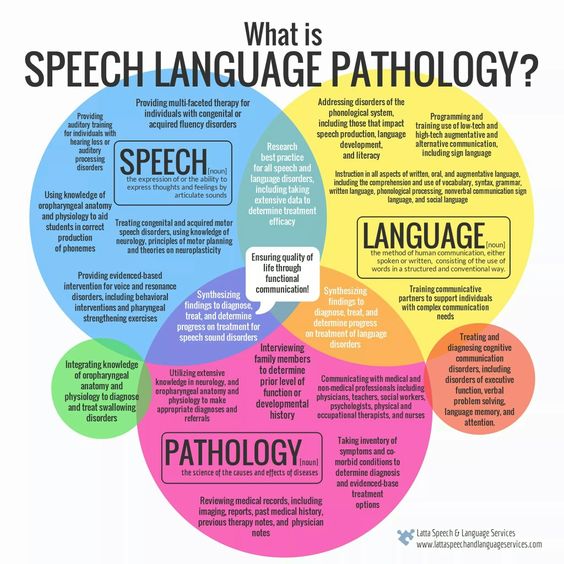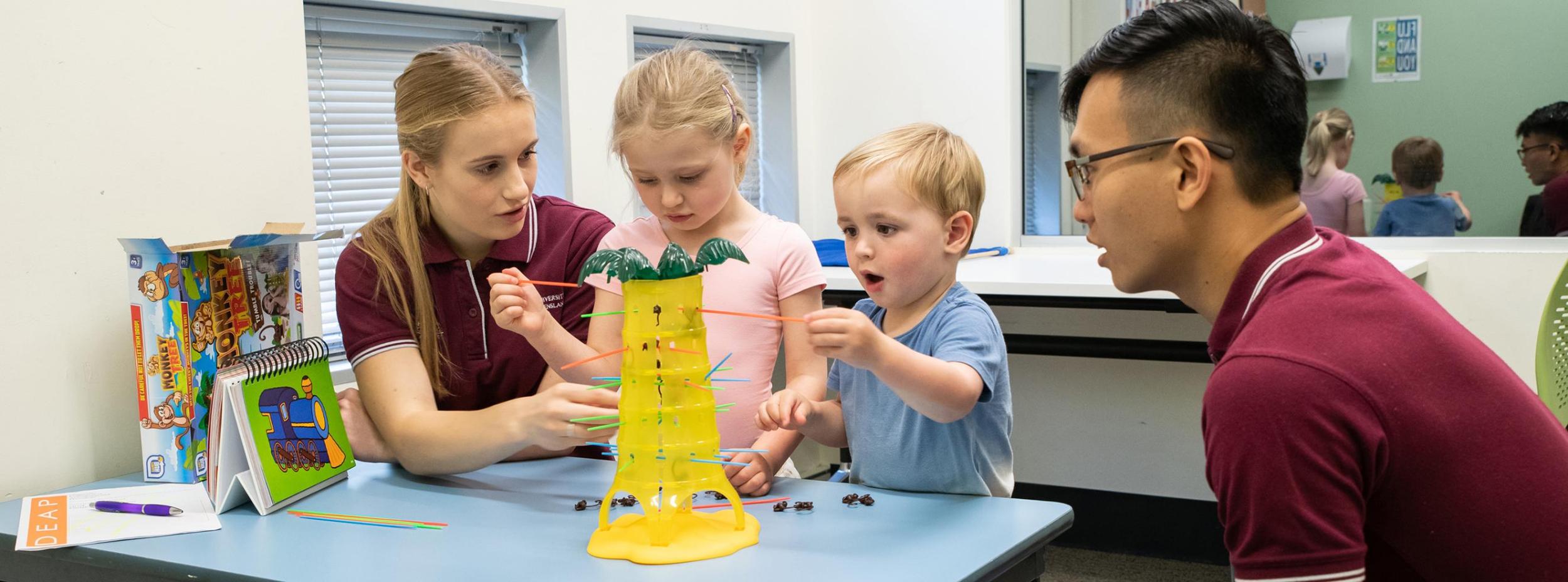
SLPs work in many different research, education, and health care settings with varying roles, levels of responsibility, and client populations. Provide counseling and consultative services.Engage in research to enhance knowledge about human communication processes and develop new assessment and treatment methods that may lead to more effective outcomes.


Provide training and education to family/caregivers and other professionals.Treat speech, language, communication, and swallowing disorders.Evaluate and diagnose speech, language, communication, and swallowing disorders.
Speech and language pathology full#
SLPs work with the full range of human communication and swallowing disorders in individuals of all ages.
Speech and language pathology how to#

Language disorders may be spoken or written and may involve the form (phonology, morphology, syntax), content (semantics), and/or use (pragmatics) of language in functional and socially appropriate ways. Language disorders occur when a person has trouble understanding others (receptive language), or sharing thoughts, ideas, and feelings (expressive language).Speech disorders occur when a person has difficulty producing speech sounds correctly or fluently (e.g., stuttering is a form of disfluency) or has problems with his or her voice or resonance.Research studies use brain mapping procedures, on-line cognitive measures and video-fluoroscopic imaging along with computerized voice analysis and stroboscopy to assist in understanding changes caused by medical, neurological or genetic conditions.Speech-language pathologists (SLPs) work to prevent, assess, diagnose, and treat speech, language, social communication, cognitive-communication, and swallowing disorders in children and adults. Research is conducted in swallowing, voice and language and discourse functions. Staff members serve in both collaborative and independent clinical research capacities. Infants and children with various genetic or developmental conditions are assessed to establish accurate diagnosis and to provide clinical recommendations to local programs.

Specialized studies are conducted to objectively assess physiological function of the oropharynx, and to assess and treat language and communicative discourse abilities in neurologically impaired populations. Goals are directed towards optimizing function and enhancing quality of life.Ĭlinical tests are performed to assess the effects of patients' impairments on functional communication or swallowing in order to determine the best course of clinical management and effect positive outcomes. The Speech-Language Pathology team provides services to NIH patients with oral motor, speech, language, voice, cognitive, and swallowing language and other cognitive impairments.


 0 kommentar(er)
0 kommentar(er)
